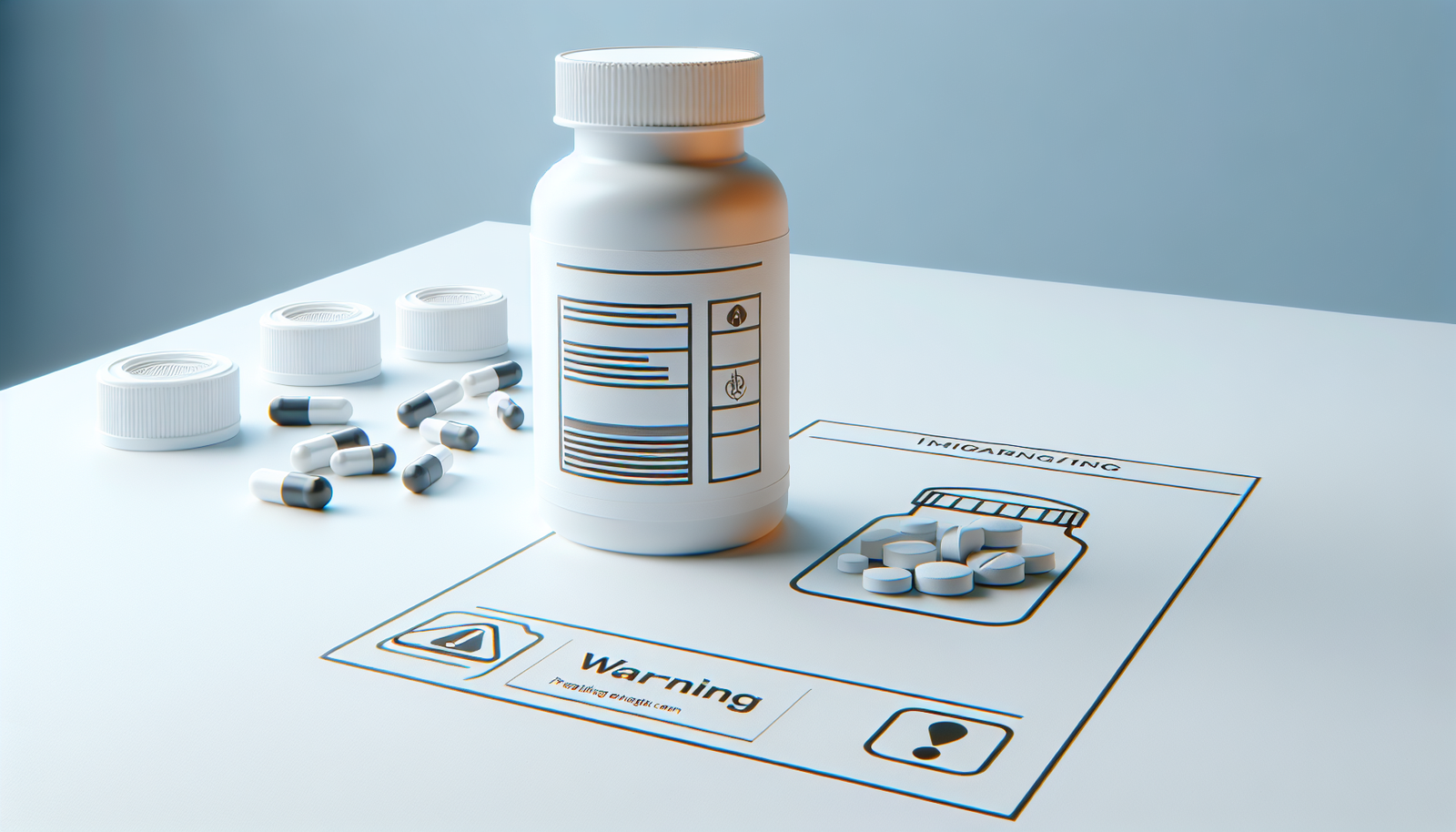Losing weight can be a challenging task, and many individuals turn to weight loss drugs for a little extra help. However, it’s important to be aware of the potential risks associated with these medications. From potential side effects to harmful interactions with other drugs, navigating the world of weight loss drugs can seem daunting. In this article, we will explore the risks you should know before embarking on a weight loss drug regimen, ensuring you are equipped with the information needed to make informed decisions about your health and well-being.
Risks of Weight Loss Drugs
When it comes to trying to lose weight, many people turn to weight loss drugs as an option. These drugs are designed to help curb appetite, increase metabolism, or block the absorption of fat. While they may seem like a quick and easy solution, it is important to understand the risks that come along with using these drugs. In this article, we will explore some of the common side effects and dangerous allergic reactions that can occur when taking weight loss drugs. We will also discuss the cardiovascular risks, gastrointestinal issues, and mental health concerns that can arise. Additionally, we will look at the potential dietary and drug interactions, as well as the risks of dependency and abuse. Finally, we will touch on the regulatory concerns and the lack of long-term data available for these medications.
Common Side Effects
Weight loss drugs can have several common side effects that may affect your overall well-being. These side effects can include nausea, diarrhea, constipation, dry mouth, and fatigue. While these symptoms may be mild for some individuals, they can be severe for others, leading to discomfort and a decreased quality of life. It is important to note that these side effects can vary depending on the specific drug being used, so it is crucial to carefully read the medication’s label and consult with a healthcare professional.
Dangerous Allergic Reactions
In some cases, weight loss drugs can trigger dangerous allergic reactions. These reactions can range from mild symptoms, such as hives and itching, to more severe reactions, like difficulty breathing or swelling of the face, lips, or tongue. If you experience any signs of an allergic reaction, it is important to seek immediate medical attention. Furthermore, individuals with a history of allergic reactions should exercise caution when considering weight loss drugs and discuss their options with a healthcare provider.
Cardiovascular Risks
Weight loss drugs have been associated with an increased risk of cardiovascular events, such as heart attacks and strokes. Some medications work by increasing heart rate or blood pressure, which can put added stress on the cardiovascular system. This increased strain can potentially lead to serious health complications, especially for individuals who already have underlying heart conditions or high blood pressure. Therefore, it is crucial to thoroughly discuss your medical history with a healthcare professional before starting any weight loss drug.
Gastrointestinal Issues
Weight loss drugs can also lead to various gastrointestinal issues. These can include abdominal pain, bloating, and changes in bowel habits. Some medications work by inhibiting the absorption of fat, which can result in oily stools and bowel urgency. These gastrointestinal issues can have a negative impact on your daily life, affecting your ability to work, exercise, and engage in social activities. If you experience persistent or severe gastrointestinal symptoms while taking weight loss drugs, it is important to consult with a healthcare provider for further evaluation.
Mental Health Concerns
Weight loss drugs can have an impact on mental health as well. Some individuals may experience symptoms of depression, anxiety, or mood changes while taking these medications. The reasons behind these mental health concerns are not fully understood, but it is believed that they may be related to the hormonal changes that occur with weight loss. If you notice any changes in your mood or mental well-being while using weight loss drugs, it is important to reach out to a healthcare professional for support and guidance.
Dietary Interactions
Certain weight loss drugs may interact with your diet, affecting the absorption or effectiveness of certain nutrients. For example, some medications may decrease the absorption of fat-soluble vitamins, such as vitamins A, D, E, and K. This can lead to deficiencies if not properly managed. It is important to work with a healthcare professional or a registered dietitian to develop a well-balanced and nutrient-rich diet plan while taking weight loss drugs.
Drug Interactions
Weight loss drugs can also interact with other medications that you may be taking. These interactions can affect the effectiveness of both the weight loss drug and the other medication, leading to potential adverse effects. It is crucial to inform your healthcare provider about all the medications, supplements, and herbal products you are currently taking to avoid any potentially harmful drug interactions. Your healthcare provider can help determine if a weight loss drug is appropriate for you given your current medication regimen.
Dependency and Abuse
Another risk associated with weight loss drugs is the potential for dependency and abuse. Some medications used for weight loss can be habit-forming and may lead to addiction or substance abuse. It is important to use these medications as directed by a healthcare professional and not exceed the recommended dosage or duration of use. If you find that you are becoming dependent on or abusing weight loss drugs, it is crucial to seek professional help and support to address these concerns.
Regulatory Concerns
Weight loss drugs are regulated by governmental bodies, such as the Food and Drug Administration (FDA), to ensure their safety and efficacy. However, it is important to be aware that not all weight loss drugs on the market have undergone extensive testing or have been approved by regulatory agencies. Some drugs may be available illegally or through online channels without proper oversight. It is crucial to only obtain weight loss drugs from reputable sources and to discuss the use of these medications with a healthcare professional.
Lack of Long-Term Data
Lastly, there is a lack of long-term data available for many weight loss drugs. While some medications may have shown short-term effectiveness in promoting weight loss, the long-term safety and efficacy, as well as the potential for weight regain after discontinuation, are not well understood. It is important to consider the limitations of the available research when making decisions about weight loss drug use. With limited long-term data, it is crucial to focus on sustainable lifestyle changes, such as a balanced diet and regular exercise, as the foundation for successful and healthy weight management.
In conclusion, weight loss drugs can offer a potential solution for individuals struggling with weight management. However, it is essential to understand and consider the risks associated with these medications. Common side effects, dangerous allergic reactions, cardiovascular risks, gastrointestinal issues, mental health concerns, dietary and drug interactions, dependency and abuse risks, regulatory concerns, and the lack of long-term data should all be carefully evaluated before starting any weight loss drug. It is important to have open and honest discussions with a healthcare professional to determine the most appropriate and safe approach for achieving your weight loss goals. Remember, sustainable lifestyle changes should be the cornerstone of any successful weight management plan.

